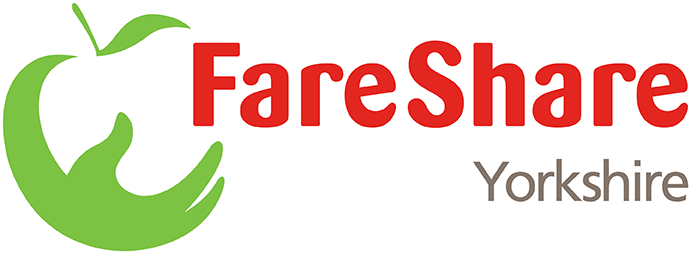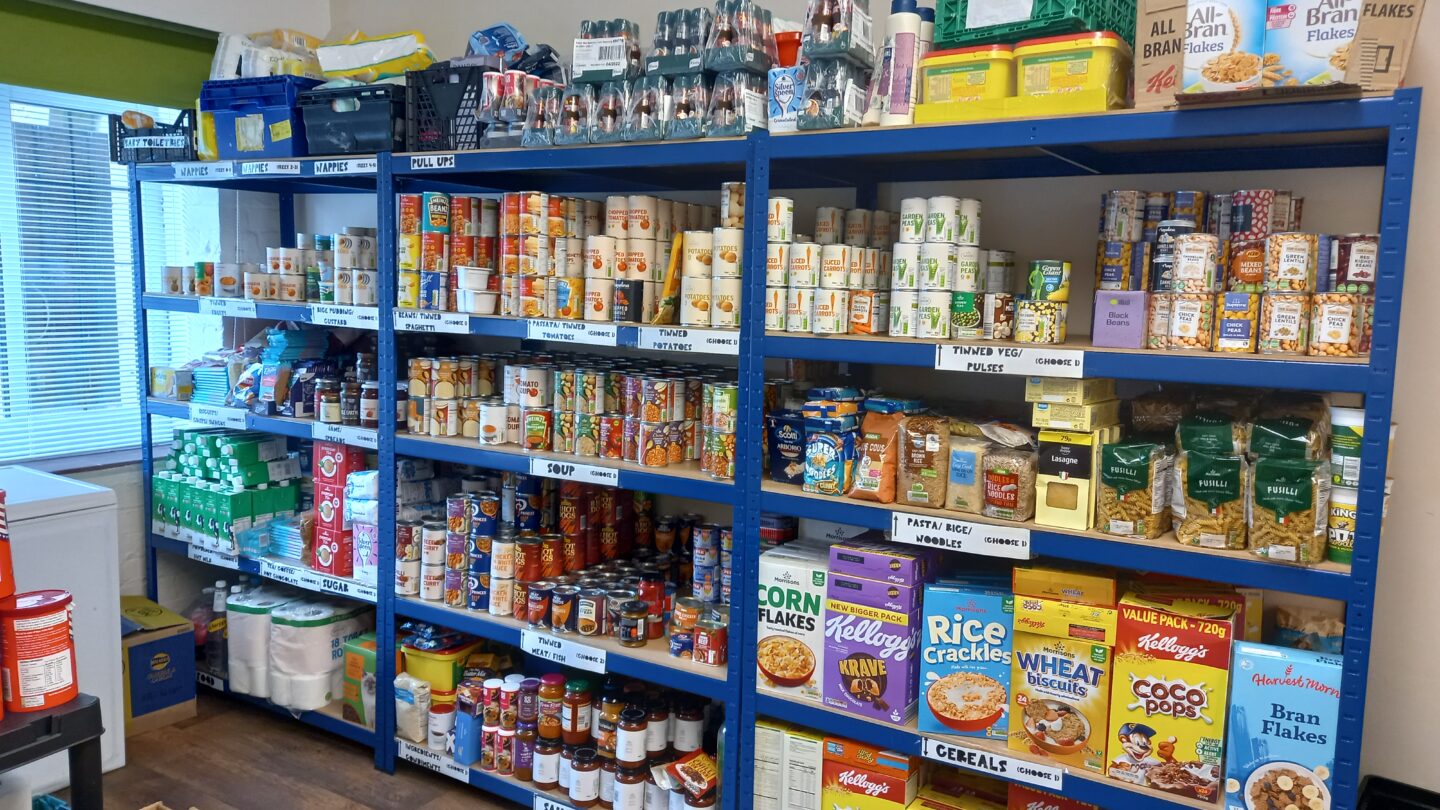Recently, we have seen a large increase in the number of food pantries -or similar such models- that we are supporting. Many of these previously operated as food banks, but have found this type of provision unsustainable, so are now transitioning to a pantry model. We realise that we are using this word a lot, but people may not know what one is, so we thought we would give a brief explainer alongside a case study from one of our brilliant community food members (CFMs) – St George’s Community Centre.
What is a food pantry?
A food pantry is typically a membership-based supported food provision. For a weekly membership fee, shoppers can visit a pantry and choose a basket of items. Pantries can vary greatly in how they operate – some pantries may cost £3 a week and aim to just ‘top-up’ a weekly shop, whilst others may be £7 and aim to supply a whole week’s food shop for one person at a significantly decreased price. Some pantries may give shoppers a weekly shopping list based on their FareShare delivery e.g., unlimited fruit and veg, 1 x cheese, 1 x milk, 1 x meat, 2 x breakfast items and 3 x store cupboard items.
A really important aspect of food pantries is choice in what they are taking home; this, coupled with the nominal membership fee, enhances shoppers’ sense of dignity. In addition, with people choosing what food they get, people take home food they really like so there is less food waste – what FareShare is all about!
Pantries also offer wrap-around support services alongside the food provision. This may be debt or careers advice, social cafes to enhance community cohesion and mental wellbeing, or even cooking classes.
We are really proud to support CFMs through this transition in to more sustainable, holistic and nutritious food provisions. Unfortunately, crisis food banks are still very much needed all over Yorkshire, but pantries provide a great stepping stone for those who are experiencing long-term moderate food insecurity. They allow beneficiaries more choice over their food, encourage budgeting and many feel an enhanced sense of dignity.
St George’s Community Centre, Wakefield, have been a Community Food Member since 2013, and like many of our members, have recently made the move from a crisis food bank to a food pantry. I recently visited the community centre and chatted with staff and volunteers about this decision.
Volunteer Co-ordinator Jade tells me about why they have made this transition:
“Prior to setting up our Food Pantry, we operated a Food Bank, providing emergency food parcels to local residents when they were in a crisis, such as a job loss or relationship breakdown. Whilst these emergency parcels are vital, there is a need to provide longer term support for people to get back on their feet. Our Food Pantry provides this support; a stepping stone offering choice, hope and dignity.”
When visiting the community centre, I can immediately tell they are the heart of their local community, with a lot of coming and going, plus a real buzz to the centre. Operating four nurseries, a community allotment, running training courses, a community café, IT facilities for the public and of course, the new community pantry, they are certainly kept busy. They also provide wellbeing activities, young persons activities, community transport and help at the hub (CAB, Step Up, DWP).
On the day I visited, I met volunteers Sandra and Sharon who were meticulously stacking shelves ahead of the opening day. Volunteer Co-ordinator Jade tells me that St George’s Community Centre has a volunteer for everything and they couldn’t operate without them. Volunteers also help manage the allotment, which will hopefully soon provide fruit and vegetables to the pantry.
The pantry has now been running for a month and it has been really successful:
“The pantry has been a massive success, and less than a month in we’re already full and operating a waiting list. We have increased the number of days our pantry is open to cope with demand. We still provide emergency food parcels, but our wonderful volunteers talk to recipients about the Food Pantry and signpost them to other forms of support.”
If any of our crisis food provision CFMs are interested in making this transition, you can contact us to see how we can help you and adapt your food provision to suit your needs. Please email [email protected] for more information.

